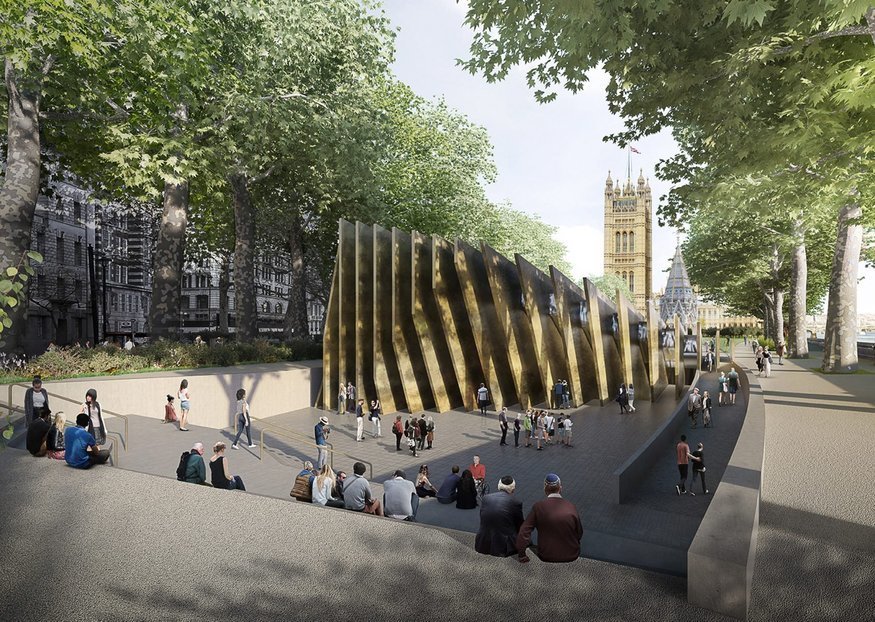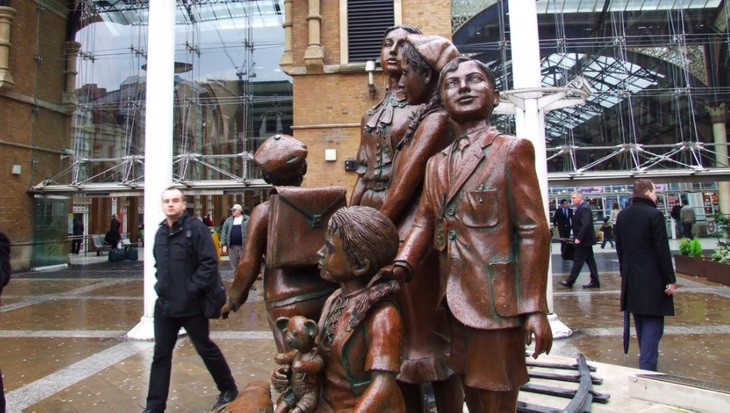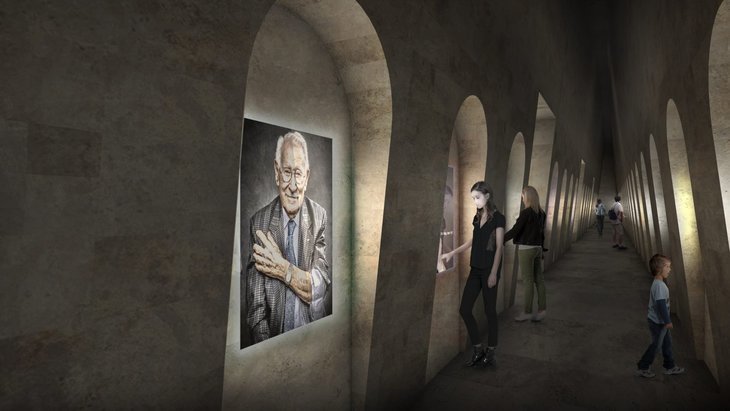
Memorials to an event are usually placed close to where the event happened, or at least somewhere with a strong connection to it. Therefore it's not surprising or unreasonable that some people reacted with confusion and bemusement to the news that a Holocaust memorial is coming to the heart of London in 2021.
To point out the obvious, the Holocaust did not happen in London, nor anywhere in Britain. So what's the point of a Holocaust memorial here?
London already has memorials to facets of Nazi persecution that are geographically relevant to the city. For example: the Kindertransport memorial at Liverpool Street station, remembering the unaccompanied Jewish children who arrived in London after fleeing the horrors of mainland Europe.
Just because the Holocaust didn't occur in this country, it doesn't mean Brits didn't experience it. Many British soldiers played a role in liberating the camps towards the latter stages of the war. Many Holocaust survivors moved to Britain after the war end, in attempt to escape the scenes of their terror and rebuild their lives.

There's another question that's being asked over this memorial: why now? The Holocaust happened over 70 years ago. London has survived without this memorial for all that time so why does it need one now?
Well, the timing is key in the building of this memorial; the Holocaust is fading out of living memory as survivors are passing away. More steps must be taken to preserve the story now that first-hand testimony is diminishing. So the timing of this new memorial and learning centre is not accidental.
How the Holocaust is perceived in public memory and how that changes over time is a fascinating topic, with many books written about it. One key point constantly revisited by academics is that the public perception of the Holocaust is always liable to change. For example if you were to ask someone in the 1950s about the Holocaust, the response you'd get would likely have been cursory. The Holocaust wasn't talked about much publicly then, unlike nowadays.
Today the Holocaust has taken on a global meaning, one that has evolved from its original second world war context. It means so much more than the atrocities the Nazis committed. Instead it represents "humanity's darkest hour". It is the go-to example of a human atrocity. Humanity has committed many other unspeakable acts and genocides, but at the end of the day, they all find themselves compared to the Holocaust.
London prides itself on being 'open' to everyone, no matter their race, gender, ethnicity, religion or culture. It's therefore fitting to have somewhere where people can spend a moment of introspection to focus on the horrifying consequences when people and places are 'closed', to show the importance of accepting all.

The Holocaust Memorial won't only focus on the past. It aims to contextualise the suffering that happened in today's society, examining anti-Semitism, racism and Islamophobia. This is especially important at a time when hate crime is rising in the UK [pdf].
As head designer of the memorial Sir David Adjaye said:
We are deeply honoured to have been given the opportunity to tell these stories to the nation through a National Memorial and Learning Centre. It is critical these highly important and emotive historical touchpoints are explored, so that future generations are able to experience, learn, reflect and act.
The memorial and learning centre isn't just to honour the past. It's to improve the present and the future.
Others have complained about the placement of the memorial within London itself. Arguments range from 'think of the dog walkers', to more serious accusations that it will overshadow the Buxton Memorial — which celebrates the end of the slave trade — and a statue of Emmeline Pankhurst, already in Victoria Tower Gardens. These statues do not need to be divorced from the Holocaust Memorial. All three are connected, by the supposed supremacy of one group over another.
However, putting such a striking structure in the shadow of Parliament sends an important message. Former shadow chancellor Ed Balls was on the committee that recommended this site and he said:
What could be a more powerful statement of our shared commitment to tolerance and free speech, and our determination to fight extremism and intolerance than to locate a Memorial to honour the victims of one of humanity's greatest tragedies side-by-side with one of humanity's oldest parliaments?
Having said all of this, the memorial still has to pay tribute to the many victims of the Holocaust, the Jews, Roma, homosexuals, disabled and all others who suffered at their hands. Their suffering should not be for nothing, and hopefully many will learn from their experience. As Holocaust survivor and member of the UK Holocaust Memorial Foundation Ben Helfgott said:
As we — the youngest survivors — pass on the baton of Remembrance, we are delighted to see this wonderful design team deliver a Memorial and Learning Centre which will resonate for generations.




